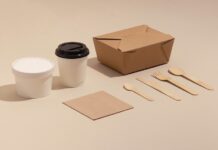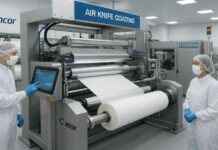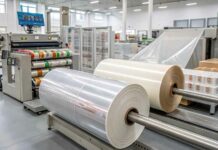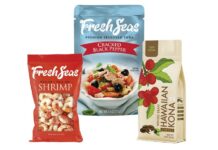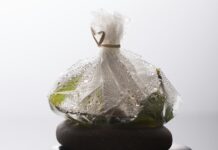Researchers Mara Braga, Marisa Gaspar, and Patricia Almeida Coimbra, from the Research Center for Chemical Process, Engineering, and Forest Products of the University of Coimbra (Portugal), have developed edible and health-beneficial packaging made out of fruit and vegetable remains and crustaceans, as an alternative to plastic packaging.
The packaging is still a prototype, but the objective is to place them on the market in the near future, according to sources from the University of Coimbra. “There are already some edible packaging in the market, but these are pioneers in taking advantage of waste and including beneficial compounds for health, such as antioxidants and probiotics,” they stated.
Potato starch and quince pectin are two of the main ingredients of the packaging because of their structural polymeric characteristics that allowed the researchers to obtain very thin sheets of them through simple processing.
Cooking with the packaging
This innovation allows cooking the food without having to remove it from its packaging, as the edible film, specially designed to cover fruits, vegetables, and cheeses, has been designed to contain bioactive properties.
To confer these properties, the researchers evaluated the reactions of the compounds, and carried out microbiological and sensory analysis of the films, studying their compatibility with food.
The project began in 2018 and has European funding. It is based on the circular economy that seeks to reuse and avoid the creation of waste and has been awarded by the University of Coimbra and in the LL2FRESH ideas competition.



